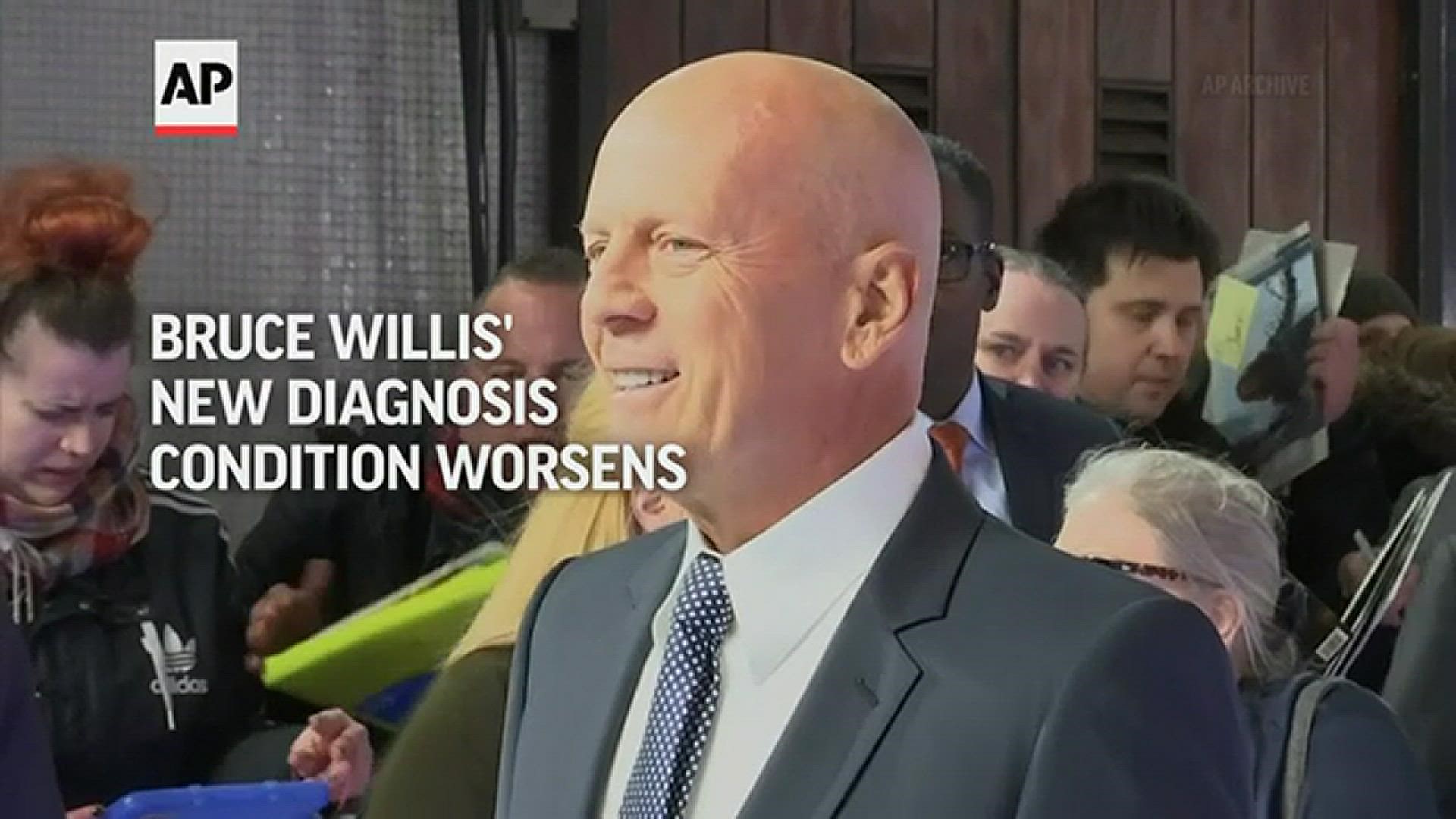MEMPHIS, Tenn. — The University of Tennessee announced Friday its researchers are working toward finding the world's first treatment for frontotemporal dementia.
UT said the news comes coincidentally a day after Bruce Willis' family announced the beloved actor had been diagnosed with FTD.
UT's Health Science Center in Memphis is leading a study to find a form of therapeutic intervention to prevent FTD or slow its progression. UT received a $308,000 grant from the U.S. Department of Defense to find one.
FTD is one of the most common causes of dementia in people under the age of 65, UT said. Combat veterans and others who suffered repeated traumatic brain injuries are believed to be at increased risk for developing FTD later in life.
Researchers at UT will attempt to use a novel gene therapy called "DNAzymes" to target pathological tau aggregates in the brain that cause FTD and progressive neuropathological symptoms. The UT study said it will examine the dose, frequency and duration of treatment in mice to determine its potential of slowing and reducing neurodegeneration and behavioral defects.
The study is being led by Dr. Mohammad Khan, an associate professor in the Department of Neurology, and Dr. Tayebeh Pourmotabbed, a professor in the Department of Microbiology, Immunology, and Biochemistry.
"DNAzyme is a powerful gene therapy technique that can be used to prevent production of proteins associated with diseases, like tau protein in Alzheimer’s disease and dementia,” Pourmotabbed said. “We have used DNAzyme as a potential therapy for breast cancer, glioma, and Huntington’s disease in preclinical animal models with great success. Hopefully, with the use of DNAzyme technology, we would be able to reduce the risk of dementia after traumatic brain injury in veterans and other individuals that deal with this debilitating disease.”
What is frontotemporal dementia?
According to the Mayo Clinic website, frontotemporal dementia "is an umbrella term for a group of brain disorders that primarily affect the frontal and temporal lobes of the brain."
While dementia mostly impacts people over the age of 65, frontotemporal dementia tends to start at a younger age with most cases diagnosed in people between 45-65 years old, according to the U.K. National Health System.
The most common symptoms and signs of frontotemporal dementia involve extreme changes in behavior and personality including, lack of judgment, increasingly inappropriate social behavior, repetitive compulsive behavior and more.
Frontotemporal dementia is the cause of 10% to 20% of dementia cases, according to the Mayo Clinic.
As Bruce Willis' family explained: "FTD is a cruel disease that many of us have never heard of and can strike anyone."

